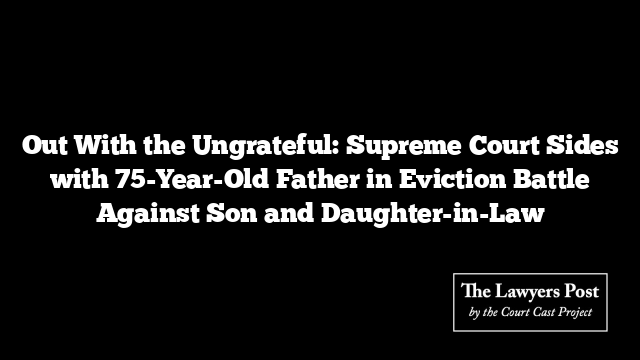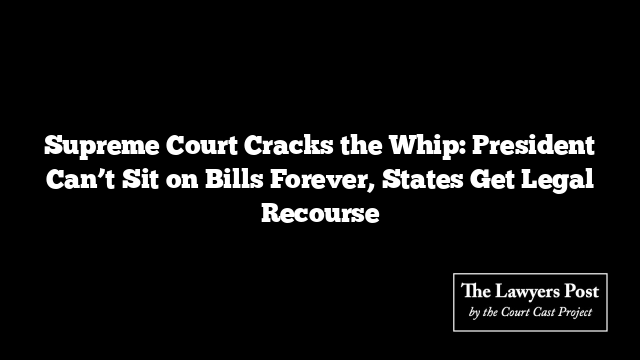The country’s highest court has sent a clear message: aging parents have the right to peace, dignity—and their own homes. In a sharp ruling under the Maintenance and Welfare of Parents and Senior Citizens Act, the Supreme Court backed a 75-year-old man’s right to reclaim his self-earned property from his son and daughter-in-law, who had allegedly hijacked his home and harassed him for years.
The elderly man, a retired Bihar State Housing Board employee, had painstakingly built a modest guest house with 20 rooms on a leased property in Kankarbagh, Patna, hoping for some financial stability in his later years. But his retirement dream took a dark turn when his youngest son and his wife gradually moved in—first occupying a room, then expanding into others—bringing threats, emotional turmoil, and even accusations of caste-based harassment.
Things escalated in 2021, just a few years after the son’s marriage. The daughter-in-law reportedly stirred conflict within the family, and when the father pushed back, they retaliated by threatening false criminal charges. Complaints flew from both sides, but it was the father who finally turned to the law for protection, invoking the 2007 Act meant to safeguard the rights and dignity of senior citizens.
The local Maintenance Tribunal stepped in swiftly, ruling in favor of the elderly man and ordering the couple’s eviction. The High Court’s Single Judge upheld it, emphasizing that when someone without legal claim occupies a senior citizen’s home, removal isn’t eviction—it’s protection.
But the legal tug-of-war didn’t stop there. A Division Bench later overturned the Tribunal’s order, suggesting rent collection instead of eviction. They reasoned that the father hadn’t technically asked for maintenance under the exact section of the Act.
Enter the Supreme Court.
Reviewing the maze of claims and counterclaims, the justices weren’t buying the delay tactics. They highlighted the worsening behavior of the couple, the mental strain inflicted on the elderly man, and the clear legal standing of his property rights. The justices also leaned on the Bihar Senior Citizens Rules, which obligate district authorities to protect the life and property of the elderly.
Relying on past precedent, the Court reaffirmed the power of Maintenance Tribunals to order eviction when it’s essential for the welfare of senior citizens. The Tribunal’s original order was restored, and the couple was given until May 31, 2025, to vacate.
Justice, in this case, wasn’t just about property. It was about restoring peace to a man who’d earned it—and reminding society that growing old shouldn’t come with a fight for your own roof.





